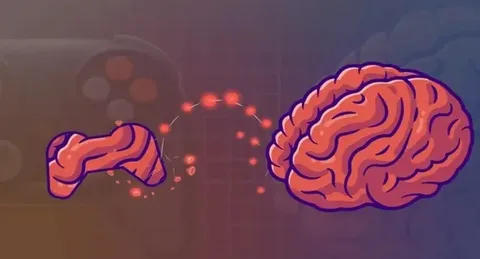For decades, video games have sparked debate among psychologists, educators, and parents. Are they harmful distractions or tools for cognitive enhancement? The truth, as with most things, lies somewhere in between.
Let’s explore the latest scientific findings on how video games can reshape your brain—both for better and for worse.
-
Improving Cognitive Function
Contrary to popular belief, video games aren’t necessarily making people “dumber.” In fact, several studies have shown that action video games can improve spatial awareness, reaction times, and multitasking skills.
Games like first-person shooters or fast-paced platformers require rapid decision-making and hand-eye coordination. MRI studies have revealed increased gray matter in regions of the brain responsible for attention and visuospatial processing in habitual gamers.
Even strategy games, like StarCraft or Civilization, have been linked to improved problem-solving abilities and long-term planning.
-
Enhancing Memory and Learning
Puzzle-based games and certain narrative-driven RPGs can stimulate memory retention and comprehension. A study from the University of California found that older adults who played 3D games for just 30 minutes a day showed improvements in short-term memory and cognitive flexibility.
It’s no surprise that educators have started incorporating gamified learning experiences in classrooms. Educational titles use reward-based mechanics similar to those in entertainment games—creating engagement while enhancing learning.
Some unconventional platforms like bintang11 even combine gaming with interactive play loops that activate memory, anticipation, and user prediction, even in casual formats.
-
The Downside: Addiction and Attention
While the cognitive benefits are promising, excessive gaming can have drawbacks. The World Health Organization officially recognized “Gaming Disorder” as a mental health condition in 2019.
This condition is marked by compulsive gaming habits, often at the expense of social, academic, or professional responsibilities. Research has found that individuals with problematic gaming behaviors often show reduced activity in brain regions linked to impulse control and emotional regulation.
Furthermore, games with constant rewards and progression systems can disrupt attention spans—especially in children. This is an area of concern that’s still being actively studied.
-
Emotional Resilience and Social Skills
Surprisingly, multiplayer games can help develop emotional intelligence. Cooperative play fosters communication, empathy, and teamwork. Even competitive losses can build emotional resilience and coping strategies.
Online communities can be sources of both toxic behavior and deep friendships. The emotional highs and lows experienced in competitive matches simulate real-world stress—making games useful training grounds for emotional self-regulation.
-
Brain Training or Entertainment?
The line between “serious games” and “entertainment games” is blurring. Many commercial games unintentionally improve mental skills, even if they weren’t designed for brain training.
This has led to a surge in research into “exergaming” (exercise + gaming), VR-based rehabilitation, and even using video games as tools for early Alzheimer’s detection.
Conclusion
Video games are more than just a pastime. They are powerful interactive systems that affect the brain in complex and often surprising ways. From cognitive gains to behavioral risks, the key lies in how, what, and how much we play.
Used mindfully, video games can be a mental gym, a social playground, and a storytelling engine all rolled into one. But like anything powerful, they require balance.
Whether you’re sharpening your skills in a strategy sim or casually spinning reels on platforms like bintang11, remember—every click is shaping your mind more than you think.


